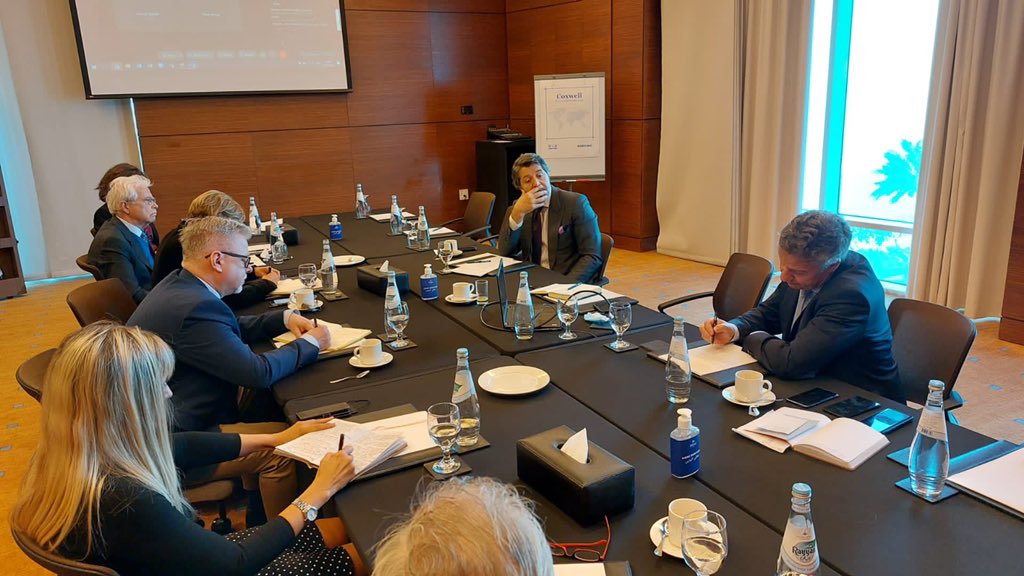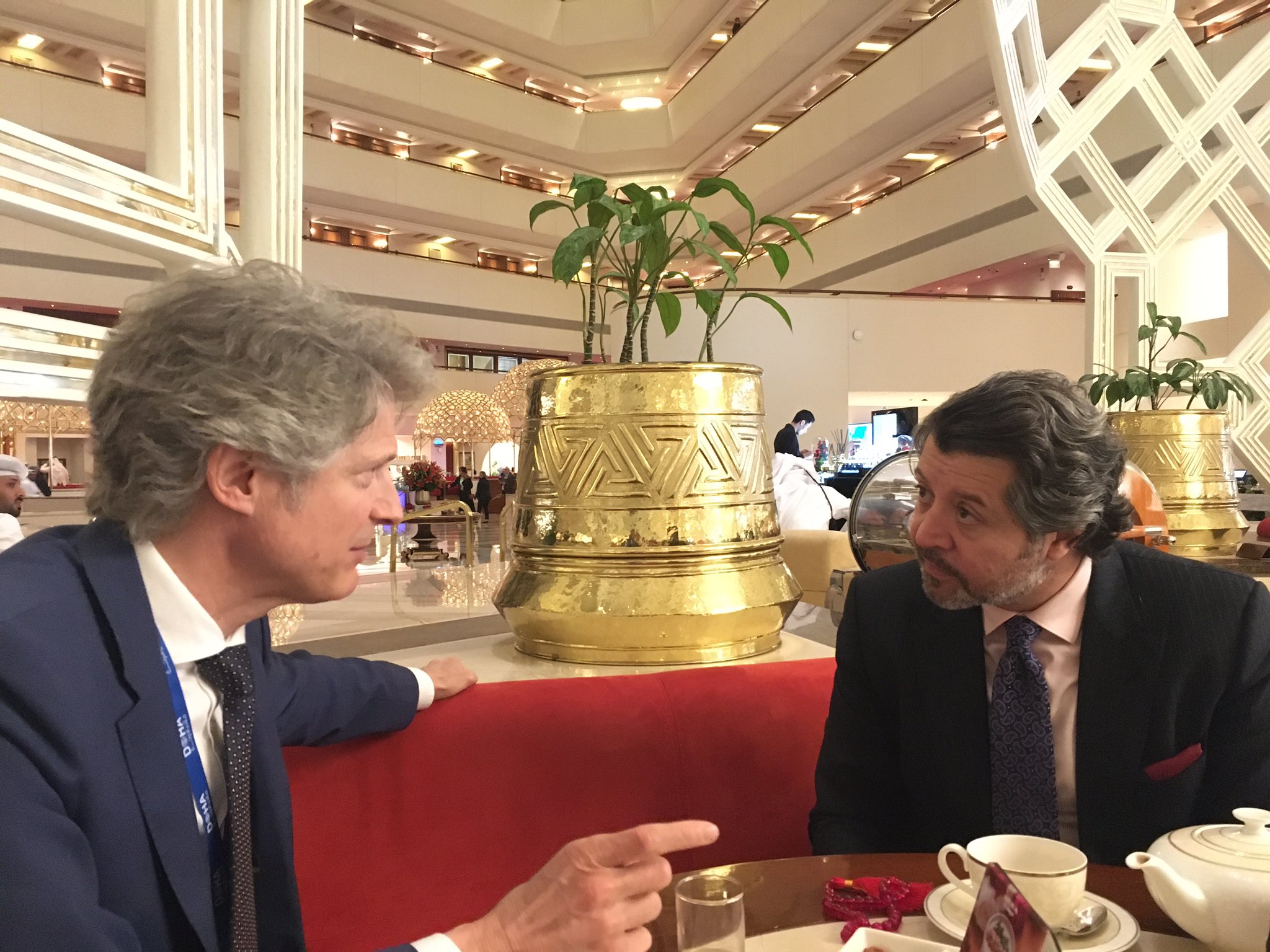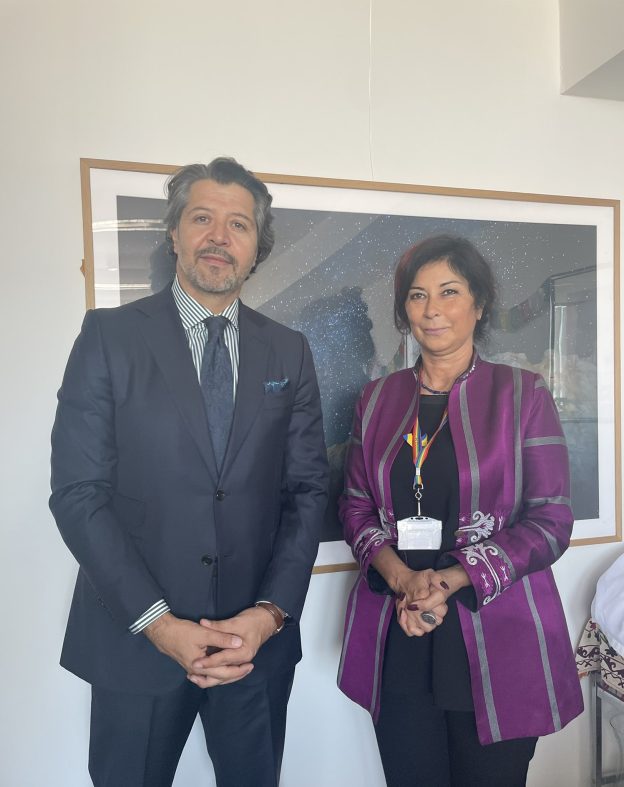Jul 21, 2013
Richard Danziger, International Organization for Migration’s (IOM) Chief of Mission and Special Envoy to Afghanistan, visited the Center for Conflict and Peace Studies (CAPS) on Sunday, July 21, 2013. He was accompanied by Khalid Koser, the Deputy Director and Academic Dean of the Geneva Center for Security Policy (GCSP). Hekmat Karzai, Hekmatullah Azamy and Mayank Bubna represented CAPS at the meeting, which began with a series of introductions and IOM’s role in South Asia. Mr. Danziger drew parallels between the work his organization has done in Sri Lanka with Tamil refugees deradicalizing Tamilfighters with ongoing reintegration efforts in Afghanistan. Mr. Karzai alsopresented an overview of CAPS work vis-à-vis the Afghanistan Peace and Reconciliation Process (APRP) and the “insider” green-on-blue attacks research projects.
A key focus of the discussion was the nature of the transition process in Afghanistan and its possible impact on migration. Mr. Koser pointed out that the American perspective on Afghanistan post-2014 was largely drawn from a very narrow security filter, i.e. a capable military and police force would allow a clean exit from Afghanistan for the international community. In his opinion, this was a myopic outlook that ignored the equally important political and economic transitions in the country. According to Mr. Koser, there was a distinct divide in outlook – a deep sense of pessimism about this transition among the international community, and over-the-top optimism inside Afghanistan.
Mr. Karzai offered his own assessment. With regards to the political transition, there were two important processes that needed to getgoing. First, the Afghan government and the international community needed to ensure that the peace and reconciliation process got off the ground and was well on its way. Second, Afghans needed to have confidence in the electoral process and outcome in the coming months. The Afghan government, according to him, should guide legitimate transfer of power and create more general awareness and transparency among the populace about the intricacies of the election process.
With regards to the economic transition, Mr. Karzai offered four key recommendations. First, there is a need in Afghanistan to develop infrastructure, and turn Afghanistan into a major transit hub for the South/Central Asia region. Second, the new mining sector has to be carefully engineered, and capacity built, in order to positively exploit Afghanistan’s mineral wealth. Third, the youth needs to be empowered and educated to givethem alternatives to fighting. And finally, Afghanistan’s public sector bureaucracy needs to be trained so as to make Afghanistan a more investment-friendly destination.
Mr. Danziger raised concerns about the internal and external refugees and migration crises in Afghanistan, and wondered if these were only temporary challenges or if they would remain an ongoing process in the distant future. He also worried about the Taliban’s commitment to women’s rights in a post-transition Afghanistan. Mr. Karzai was quick to assure him that the Taliban cannot be seen as enemies of the state, rather they need to be integrated into the political, social, cultural fabric of Afghan society, and have much to offer in justice affairs particularly at the grassroots levels.
Both, the IOM representatives and CAPS, expressed mutual interest in cooperating to initiate conflict transformation work, particularly in northern and western Afghanistan.






Leave A Comment